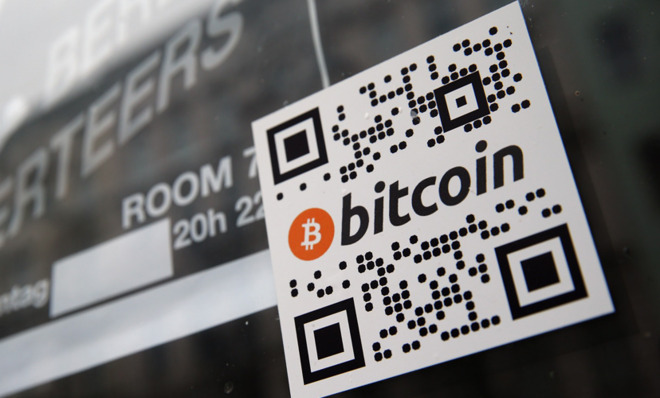Good luck trying to regulate Bitcoin
Supporters of the digital currency warn that intrusive government rules would be massively counterproductive

A free daily email with the biggest news stories of the day – and the best features from TheWeek.com
You are now subscribed
Your newsletter sign-up was successful

Bitcoin is on the brink of blasting into the mainstream, as restaurants, coffee shops, and hotels begin to accept the virtual currency, leaving lawmakers and regulators scrambling to sort out how best it can be regulated.
The price of Bitcoin soared to a record high of $750 on Mt. Gox exchange on Monday, ahead of a congressional hearing where lawmakers from the Senate Homeland Security Committee discussed slapping regulations on the relatively new currency.
Bitcoin, which is not backed by a central bank and can be traded privately on a handful of exchanges, is known as the internet black market's currency of choice. Just last month, federal law enforcement officers shut down Silk Road — a hidden online marketplace known as the "eBay of illicit goods," where people used Bitcoin to purchase drugs, guns, prostitutes, and other illicit goods and services.
The Week
Escape your echo chamber. Get the facts behind the news, plus analysis from multiple perspectives.

Sign up for The Week's Free Newsletters
From our morning news briefing to a weekly Good News Newsletter, get the best of The Week delivered directly to your inbox.
From our morning news briefing to a weekly Good News Newsletter, get the best of The Week delivered directly to your inbox.
As the digital currency gains more popularity beyond the dark corners of the internet, regulators are beginning to acknowledge it as a credible alternative to traditional payment methods in need of some oversight. Before the hearing, Bitcoin received an unexpected nod of support from Federal Reserve Chairman Ben Bernanke, who said in a letter to the committee that it "may hold long-term promise."
Indeed, the 12 million Bitcoins in circulation are being used to purchase everything from sandwiches at a Subway franchise in California to online dating memberships on OkCupid.com, and hotel rooms at the Howard Johnson hotel chain. Even politicians are getting in on the Bitcoin boom. Just last week the Federal Elections Commission announced that it would be taking the first steps to allow political campaigns to accept Bitcoin donations.
Although federal and state officials have already issued a handful of guidelines to monitor digital currencies, they are still working toward a unified strategy to address potential regulatory problems. Bitcoin advocates, however, caution that excessive or intrusive regulations could hamper the United States' role in what they say is the next "technological revolution."
Testifying before the committee, Bitcoin Foundation General Counsel Patrick Murck said, "Incautious behavior on the part of governments and law enforcement could make the Bitcoin environment harder to work with." He added that if regulations are too intrusive, more Bitcoin users could go underground — making any regulations nearly impossible to enforce.
A free daily email with the biggest news stories of the day – and the best features from TheWeek.com
All three administration officials testifying agreed with Murck that regulators must be careful not to stifle innovation.
"One of our biggest challenges is striking the right balance between the costs and benefits of regulation," the Treasury's Financial Crimes Enforcement Network (FinCen) director Jennifer Calvery said. It ensures a level playing field for industry and minimizes gaps in our coverage."
In the meantime, officials from the U.S. Secret Service, which investigates counterfeit currencies, and FinCen told the committee that companies that deal in Bitcoin must comply with existing money-laundering rules.
Under these rules, money transmitters using Bitcoin are required to register with FinCen. They are also required to implement anti-money laundering programs and keep records of their customers, as well as report any suspicious transactions.
Senate Homeland Security Chairman Tom Carper (D-Del.) made clear that his committee is only in its "information collecting" stage, and did not offer a legislative agenda to address the currency. Instead, the committee will have a second hearing later in the week to continue questioning both industry experts and law enforcement officials.
More from The Fiscal Times...
-
 How the FCC’s ‘equal time’ rule works
How the FCC’s ‘equal time’ rule worksIn the Spotlight The law is at the heart of the Colbert-CBS conflict
-
 What is the endgame in the DHS shutdown?
What is the endgame in the DHS shutdown?Today’s Big Question Democrats want to rein in ICE’s immigration crackdown
-
 ‘Poor time management isn’t just an inconvenience’
‘Poor time management isn’t just an inconvenience’Instant Opinion Opinion, comment and editorials of the day